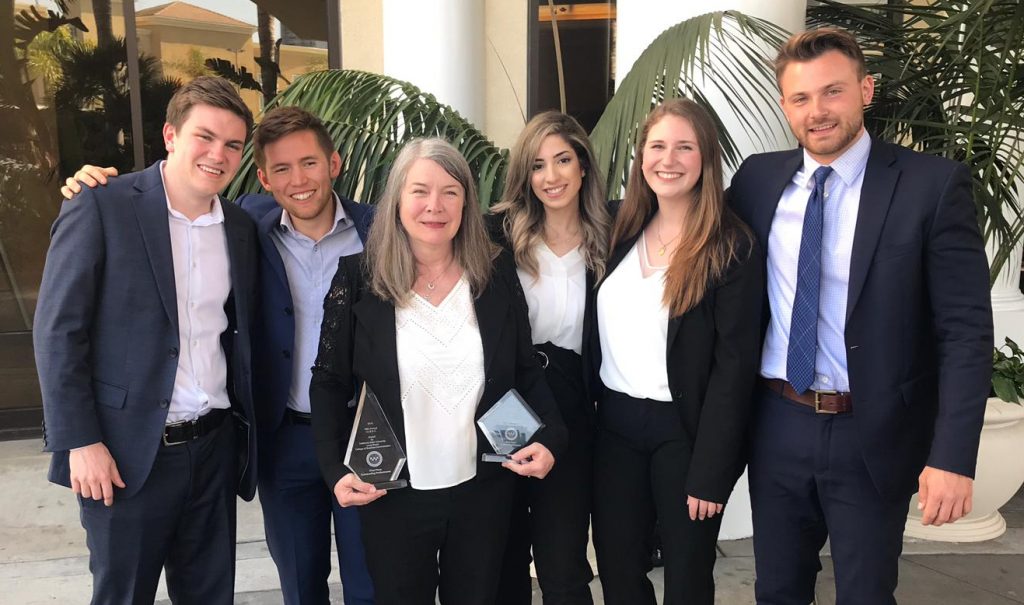DeGroote’s ‘MugMaster’ team wins gruelling international competition

DeGroote students outperformed dozens of rival schools, operating a mock company called MugMaster in the gruelling, 12-week International Collegiate Business Strategy Competition, which wrapped up April 27 in Anaheim, Calif.
DeGroote School of Business students came in first at one of the world’s most prestigious business case competitions.
DeGroote BCom students finished first in both Performance and Annual Report categories at the International Collegiate Business Strategy Competition (ICBSC).
ICBSC is a business simulation competition in which teams create a fictional business and are tasked with making weekly or quarterly strategic decisions about marketing, finance, operations and other aspects of business.
Participants also create business plans and annual reports, and present to a board of directors.
Lasting a gruelling 12 weeks, the competition begins remotely in January, with the finale held April 25-27 in Anaheim, Calif.
This year, the competition attracted undergraduate and MBA students from the United States, Canada and around the world. Each school’s team made up their own product worth about $10.
DeGroote students outperformed dozens of rival schools, operating a mock company called MugMaster, whose product was a line of coffee mugs.
The team comprised Fred Woodley, Owen Angus-Yamada, Daniel Fellows, Avery Lewis and Dina Sabeh, as well as academic adviser assistant professor Linda Stockton.
“We won the competition by making the best decisions about production, HR, marketing, finance, IS, international business, and strategy on a weekly basis,” says Stockton.
“We also had the best presentation and the best documents. There was a lot that set DeGroote apart from other teams.”
The team would meet or hav ea call at least once a week to share insights on their results and bounce ideas off one another, says Angus-Yamada. Each team member was assigned a specific role in the company.
Because of the 12-week timeline, “this is not a typical case competition where the students get three hours to read and prepare a case for presentation to a panel of judges,” Stockton says.
“The teams grow in their decision-making skills, team membership, personal development and time management.”
The timeline makes for a complex competition, sayssays Jennifer McCleary, director of student experience at DeGroote. “The team worked countless hours each week competing with other schools in a business simulation.”
Participation in the competition was financially supported by the DeGroote Experience Fund, which supports DeGroote students participating in national and international competitions, conferences and workshops. Click here to learn more about the fund, and click hereto read more about the DeGroote School of Business.


